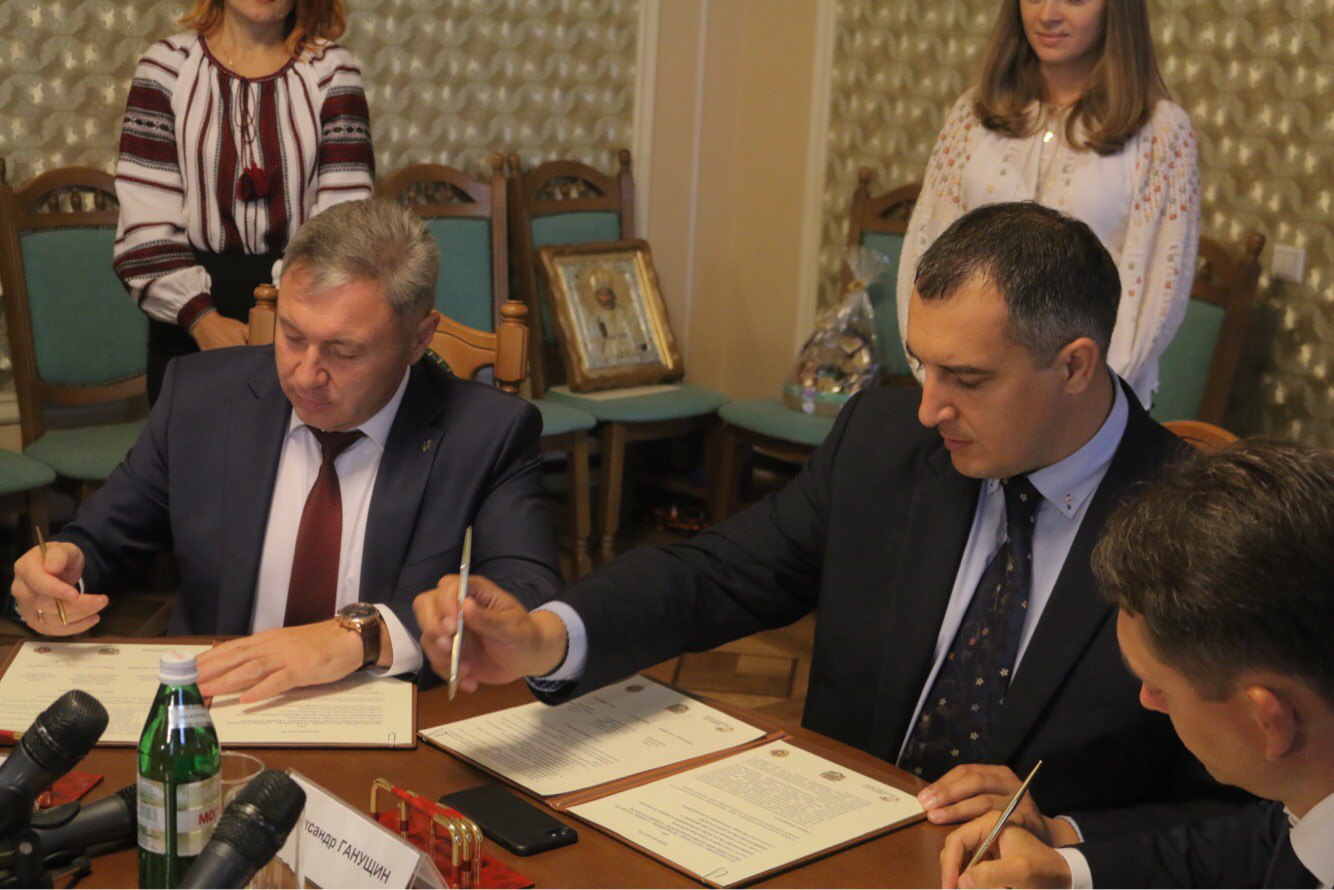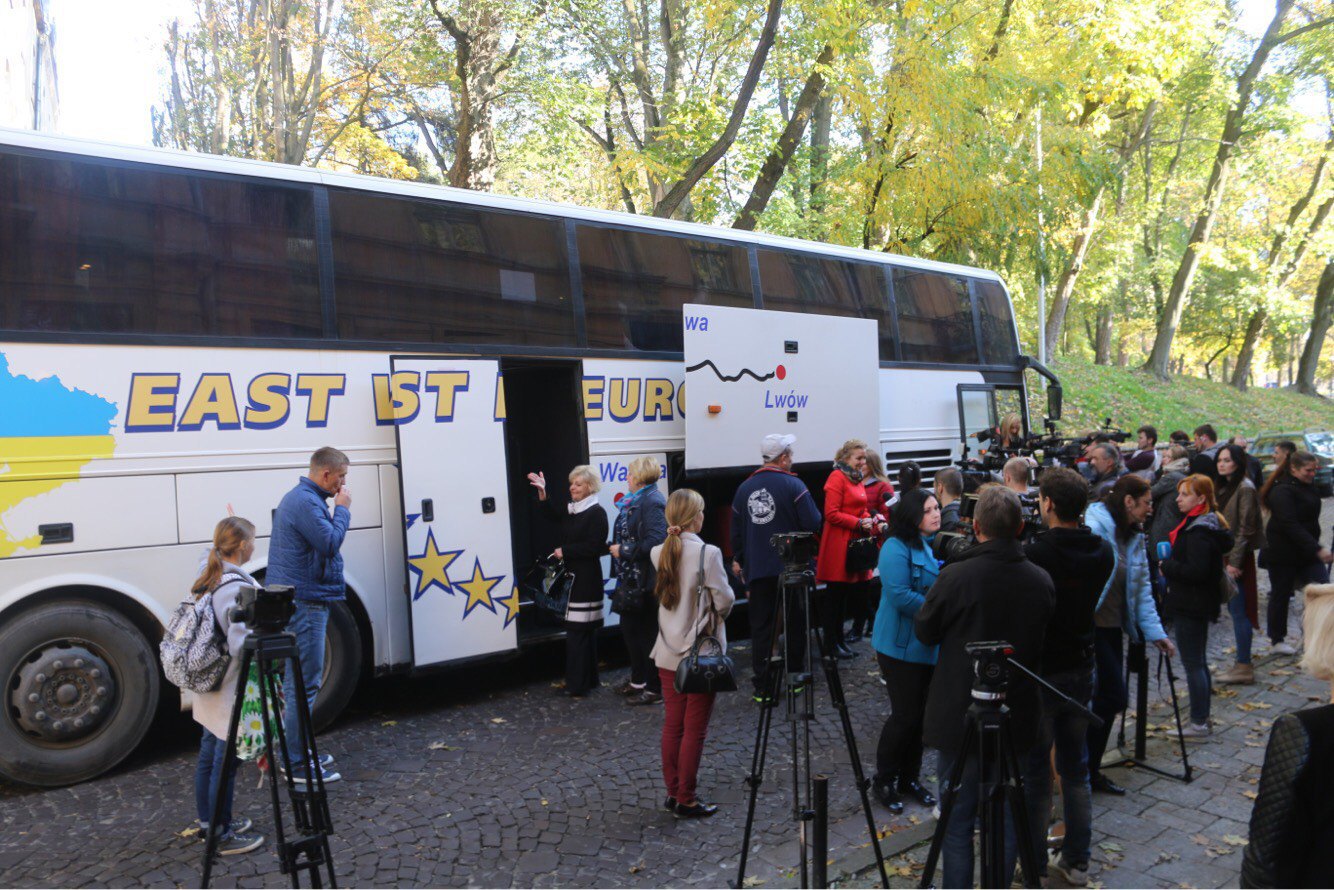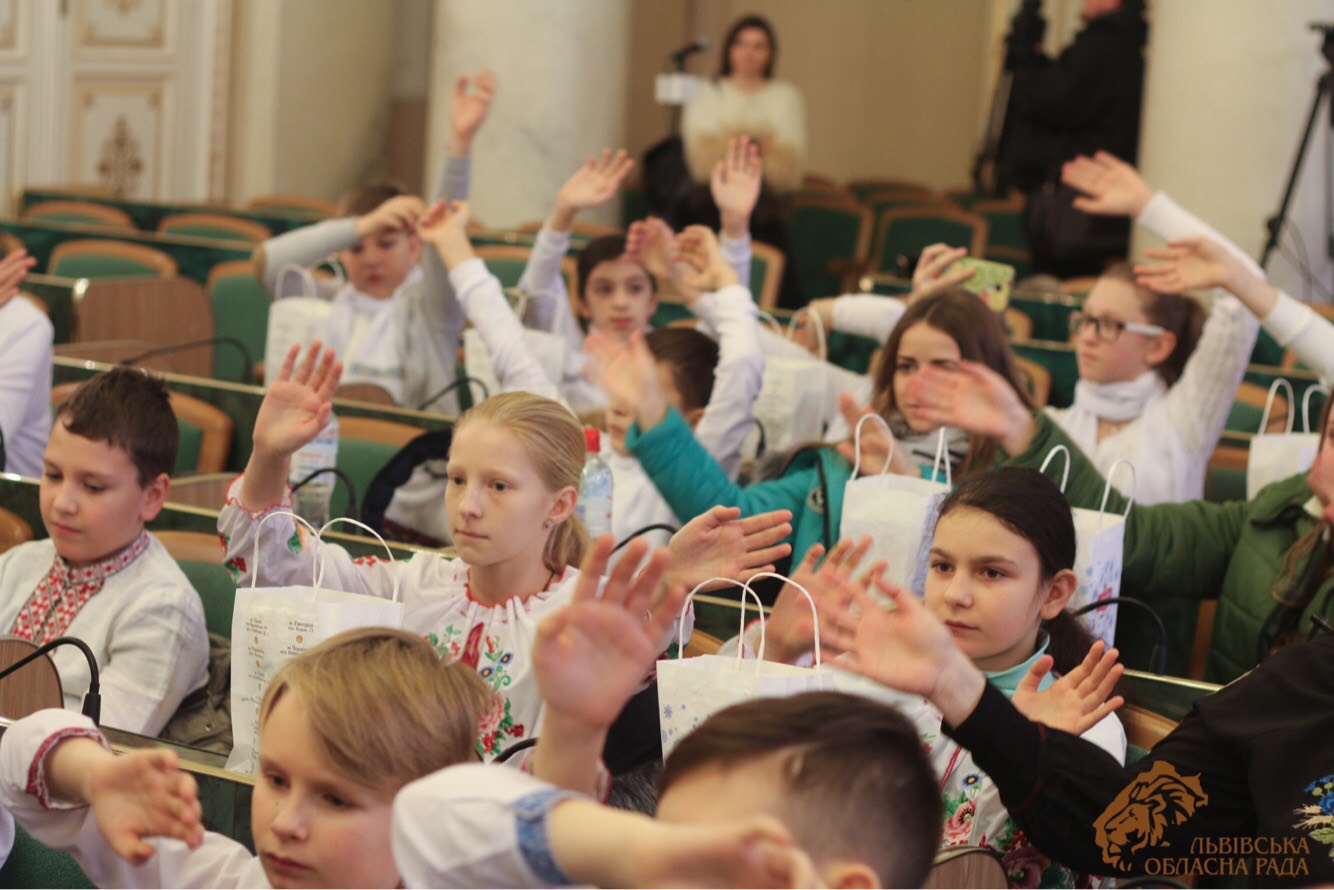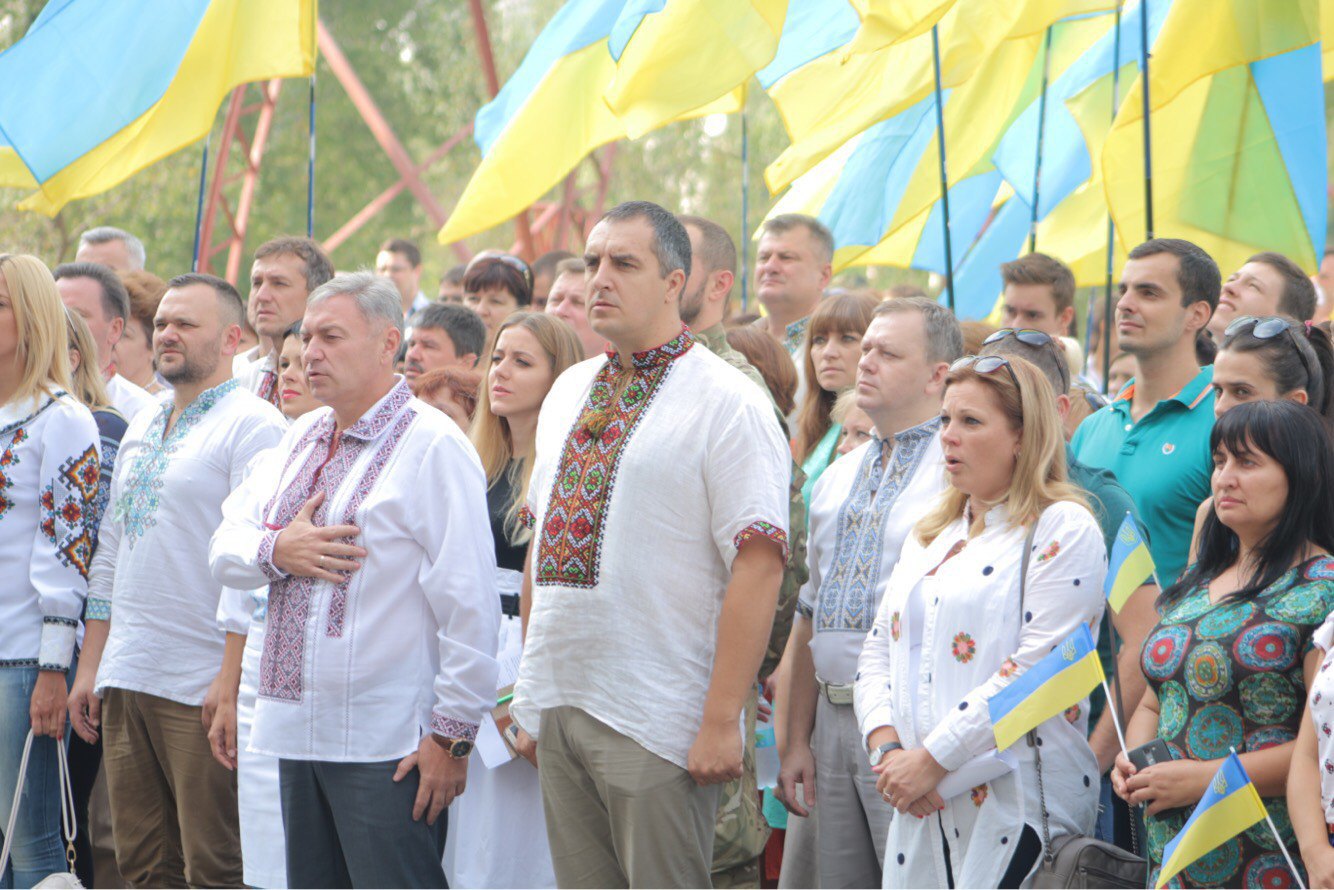Following the IX National Expert Forum, Interior Minister Arsen Avakov outlined his vision of a strategy on the deoccupation and reintegration of the occupied territories in the policy article. Since the concept "How to overcome problems in Donbas" can swiftly move to a practical phase, I have decided to write this article to prevent the wrong course of action.

Criticism of legislative novelties
The proposal to put into effect a new Law "On Amnesty", concerning a majority of Ukrainian citizens who reside in the territory occupied by the Russian aggressor and were not involved in the bloodshed, prompts the fewest questions. Although I daresay that most Ukrainian citizens would appreciate another vector of lawmaking, which would replace amnesty with a citizenship test. That is, participants in the resistance movement, who suffered from the ORDLO [certain areas in Donetsk and Luhansk regions] regime over their political positions, and those who were forced to leave the territory occupied by Russian mercenaries, should have their civil rights automatically restored. The others would have to pass a procedure prescribed by a new law. In any case, it will be possible to react more to the point to the proposal on the amnesty law and its conditions after reading its text.
However, the interior minister surprised everybody a little when he suggested legal punishment for collaboration. If the legal flaw is intended to cover up for the inability of the investigating bodies of the Interior Ministry, the Security Service of Ukraine (SBU) and prosecutor's offices of all levels to prosecute those involved in crimes against the state, including for the organization of referendums on the establishment of the Luhansk and Donetsk people's republics (LPR and DPR respectively), accommodation and assistance to the occupational forces, blockade of the movement of Ukrainian troops, and appeals to change the state order with calls like "#Putin, come " - this list containing thousands and thousands of episodes is inexhaustible. This concerns residents of the territories adjacent to those occupied by Russia, where the Ukrainian authorities are operating. It looks like an excuse for law enforcers' powerlessness, impotence and lax action with regard to various separatists publicly exposed in the 2014-15 events, thousands of whom live their untroubled lives anywhere from Starobelsk to Mariupol. We could assume they are looking forward to the Law of Ukraine "On Amnesty". Perhaps it would be better for investigating bodies to prove their effectiveness within the existing framework of the Criminal and Criminal Procedural Codes.
We tackle the wrong case, let's bring our home in order first
One brief note: the whole concept presented by the interior minister in the form of a "Strategy for the deoccupation and reintegration of the occupied territories of Donbas based on the tactics of small steps as one of the real ways to end the war" is based on the actions within the occupied territories. So, it foresees a situation in which a separate city, "for example, Horlivka or Novoazovsk District", will be voluntarily demilitarized by the occupiers. Without a fight, under international guarantees, etc., under the supervision and mediation of a special international monitoring mission. I would say, and I hope I'm not alone here, that it is an absolutely false and fantastic assumption, at least for the nearest future (as of June 2018), on which the further so-called "small steps" are being based. By the way, they are not so small: from local elections, the restoration of social infrastructure to national elections. Then, this successful experience from Horlivka or one of the districts should be replicated in neighbouring territories. City by city, district by district.
The first and main obstacle to the plan is a very bold assumption that someone in the Kremlin will accede to a targeted peaceful deoccupation. Even in Debaltseve, which had to be under the control of Ukrainian authorities in accordance with the Minsk agreements. Well, how and who will convince local "vata"[regime supporters nostalgic about the USSR] that what was presumably theirs should now be ceded to "ukrops" [derogative word for Ukrainians]? And, besides, all the vectors of high-ranking negotiations from the Volker level onwards envisage a package to restore (meaning the withdrawal of the occupying army back to Russia) Ukraine's sovereignty over the entire occupied territory. Therefore, I would suggest that such respected persons as the interior minister forget about a targeted deoccupation of the territories occupied by Russia and, most importantly, about the brilliant "pilot projects" of their reintegration.
Real "small steps", or a great work stalled
"Oppose - propose!" Below are my proposals which may bring closer the deoccupation and reintegration of territories occupied by Russia, which are not necessarily original. The goal can be reached only by working in cities and districts of Donbas adjacent to ORDLO.
No "pilots" within one liberated and demilitarized city or district are needed. It requires hard efforts scheduled at least for five years all over Luhansk and Donetsk regions where the yellow-and-blue flag is up today. The main points outlined below focus on civil efforts alone.
Point No 1: information outreach
Without it, the efforts to bring closer the deoccupation and reintegration of the occupied parts of Donbas are doomed. These days, the state of Ukraine, now in the fifth year of the war, has not yet started a proper fight for the minds of its citizens from Severodonetsk to Mariupol, so there is no reason to talk about any defeat. Those who are brave enough to put forward plans for deoccupation, some small or big steps, without realising the obvious failure, simply do not know the actual lay of the land. It is not something new, the Kyiv hills have seen everything and more, but still. Currently, it has come to the point that the attitude towards the collective image of the state of Ukraine, its attributes in the form of government institutions in the areas of Donbas bordering on the occupied territories is worse than in respect of those across the Donets River, on the other side of the line of contact. The reason is the same as at the beginning of the war - the central authorities (in the face of the Ukrainian government and others) simply does not address the main problem. A special regional information policy is required with the annual budget of hundreds of millions and experts in PR and psychological warfare. It will be confirmed by every reasonable and loyal officer of the Armed Forces or the SBU or few civil activists present in Ukrainian Donbas. After all, the only way to successfully sell the idea of "successful Ukraine" as opposed to the "darkness of the Mordor quasi-republics" in the 21st century is by using propaganda. And only counter-propaganda can debunk and curb information warfare being waged by Russia to target residents in the areas under and outside its control.

Point No 2: development of social infrastructure and solution of employment issues
All these solutions are simple and visually understandable; therefore, it is strange that the central authorities have not yet explored this "field". Construction of roads, refurbishment of kindergartens, schools, hospitals (the third level of the health care system remained in the hands of the occupiers) ... The list can be continued, everything depends on how much can be allocated from the budget for these purposes, multiplied by the managerial potential of the regional and district military-civil administrations. Today the budgets of both regions have nearly the lowest capacity in the state as a whole. The reason is clear: no taxes have been paid from the areas behind the line of contact for over a year. However, what is required is not only targeted financing from the state budget. It is of the utmost importance to arrange for the operation of hundreds of design offices, engage reliable construction companies, negotiate with those who are ready to set up asphalt factories under the guarantee of orders and much more. In the meantime, I am confident that there is no need to establish any new agencies on the Kyiv hills (yet another nail in the coffin of the interior minister's "small steps" idea to establish an Agency for the Restoration of Donbas)! Really, that is enough! What we have and does not work is enough.
Are were seriously discussing the prospects for the deoccupation and reintegration of ORDLO? Then, the transport infrastructure, for example, of Luhansk region should have been rebuilt now at twice the pace we have in Lviv Region. To start with, 1,000 km of quality roads per year. Do you not believe me? Clearly, it is a realistic target which can be reached in two years provided there are Kyiv's political will and appropriate resources. It is possible to build the most up-to-date, new Luhansk regional hospital worth at least 800 million, but still no less necessary, somewhere in the vicinity of Severodonetsk over 3.5 years. And so on - education, culture, social protection, etc. However, there is a more complicated problem, which is employment. If success in overcoming problems of access to basic services guaranteed by the state and communications infrastructure is a derivative of managerial potential multiplied by the resources of the state budget, employment is a much more complex issue. Priority steps should range from specialized loans to small and medium businesses to the review of all problems concerning idle budget-sustained companies on the level of Azot and below. It will not work without top officials taking care of such issues. Foreign investments in the amounts which could change the employment situation in these areas are unlikely to come any time soon. But no job which earns a citizen of Ukraine a real salary can be overpowered by any propaganda aimed at the relatives of this person living on the other side of the line of contact.
Point No 3: unification of the country through interregional multi-level cooperation
The need to overcome the stereotypes about the country being divided into parts and debunk myths about the omnipresent "vata" in Donbas or "bloody Banderites [supporters of WWII Ukrainian nationalist leader Stepan Bandera]" in the west or "junta" in the capital is more pressing than ever. A European choice will never be realized until at least sensible local elites swear by it. A teacher, whose last trip outside Luhansk Region happened back in Soviet times, will never teach students the European way of thinking. NATO will never become a security umbrella for an average Luhansk resident but will remain a "bloc of cursed imperialists" until teachers with sparks in their eyes and mass media explain these issues repeatedly. There should be a state exchange programme in education, culture, media, sports, and joint projects between local municipalities. A school in Stanytsya Luhanska should be able to communicate with a school in Drohobych, culture collectives from Starobelsk should have an opportunity to present their music compositions in Boyarka, while Lviv athletes should regularly participate in competitions in Kreminna. All of these efforts are to involve thousands of people who are thousands of kilometres apart. In five to seven years, the processes will definitely become irreversible. This task is less expensive than the previous two, there are already the first positive cases, the highest political will is necessary now. The country needs to be sewn together, and these are not some fancy words, it is a pressing need. It must be pieced together with the help of millions of contacts, projects, business initiatives among the citizens of various parts of our Motherland.

Point No 4: reformed social policy for internally displaced persons
Frankly speaking, the issue is outside my competence. However, based on the media and reputable analytical publications on what the state does for internally displaced persons, it leaves much to be desired. Absolutely different and effective programmes are necessary for the adaptation and social protection of internally displaced persons, primarily those who had to abandon their houses and families in the territories occupied by Russia and are currently staying in the areas of Luhansk and Donetsk regions under Ukrainian government control. After all, we are liberating and planning to deoccupy and reintegrate not some mythical land but people. The state must support its citizens who were forced to leave occupied Donbas to balance off the attitude towards their families and friends in ORDLO.

Point No 5: do not hurry with elections, develop social networks and human resources
Any speculations on whether elections should be held or not, what elections should be held in the territories adjacent to the occupied ones and in ORDLO as such are usually a reaction to the Minsk agreements and "the pressure of Western democratic institutions". However, the goal of this point cannot be reached without any intermediate results from the implementation of the above-mentioned points, ranging from information protection to actual support for internally displaced persons. Right there is the enemy with aggressive information policy and agents who have not been punished for the crimes committed in 2014/2015, while we are busy thinking whether we should let a fish back into the river or not. Above all, we are talking about local elections in Luhansk and Donetsk regions, which are to take place in 2020. Do we want to have pro-Russian local councils, mayors who assisted the occupiers and regional councils made of separatists? This scenario is quite realistic, but the central authorities either do not see this or do not want to take it into account. On the contrary, a number of inactive local councils should be disbanded and subsequently replaced by new territorial military-civil administrations. Otherwise, what should we do with the functions of the council and the executive committee in Shchastya which have not convened sessions for years, or how to react to the blockade of budget sessions in Severodonetsk by former Party of Regions members, or to water problems in Lysychansk. But besides this discussion, the central authorities should (if not alone than in cooperation with international donors working in Ukraine) take care of the proper level of staff and managers of all units at military-civil administrations. Indeed, they lack managerial expertise and skills. It is much more difficult to be in charge there than in any regular district administration, for example in central Ukraine. Besides, the voluntary unification of communities and proper decentralization through changes in the administration should be monitored by law-enforcement agencies along with the regional military-civil administrations. Otherwise, we can get an enclave with the legally elected pro-Russian authorities, for instance, in the centre of Popasna District along the front line. Despite this, small grants for socially important purposes, shared budget deductions, micro-project competitions with mandatory contributions from communities are necessary in order to develop feeble local self-government and the public sector. These regions are significantly behind the rest of Ukraine in this regard. Relevant state programmes with proper budgets and information campaigns are needed as air if we want to see results in three to five years.


Conclusions, or to be continued
To sum up, I do not really want to disappoint the author of the strategy of deoccupation and reintegration in the form of small steps, but his vision is incorrect. Currently, it is essential to create relevant living conditions for residents of Luhansk and Donetsk regions in the territories adjacent to the occupied ones. And thanks to the efforts to be paid, these conditions must be so different from the ones across the Siverskyy Donets River to leave Russian propaganda no chance.
Deoccupation and reintegration must first be implemented in the civil sector where critically little has been done so far, from Stanytsya Luhanska to Mariupol.
What I should thank Avakov for is for giving an impetus to the discussion on this topic. By the way, it would be nice to step up the efforts and raise more resources for the successful operation of the National Police, the State Emergencies Service, the State Border Service and the Migration Service of the Interior Ministry, which is a direct responsibility of the Interior minister. I hope his ideas will be fine-tuned before they become official documents.
And once again for all those who have read until the end. A simple truth gleaned here is that reintegration should start with the controlled territories, not the occupied ones. I wholeheartedly insist that Mr Avakov and the supreme political and military leadership of the state should take into account the realities on the ground, not just the images drawn up on the capital's hills when they develop plans for Donbas.
And, of course, they should continue to work in the international arena and boost the capacity of the Joint Forces Operation troops; thoroughly consider options based on the world's experience of warfare and settlement of international conflicts; prepare in advance, not when something has already happened. But it is an issue for discussion in my next article.








